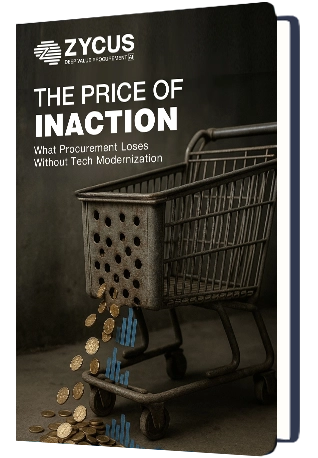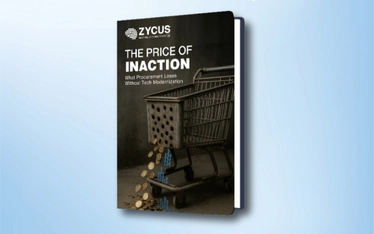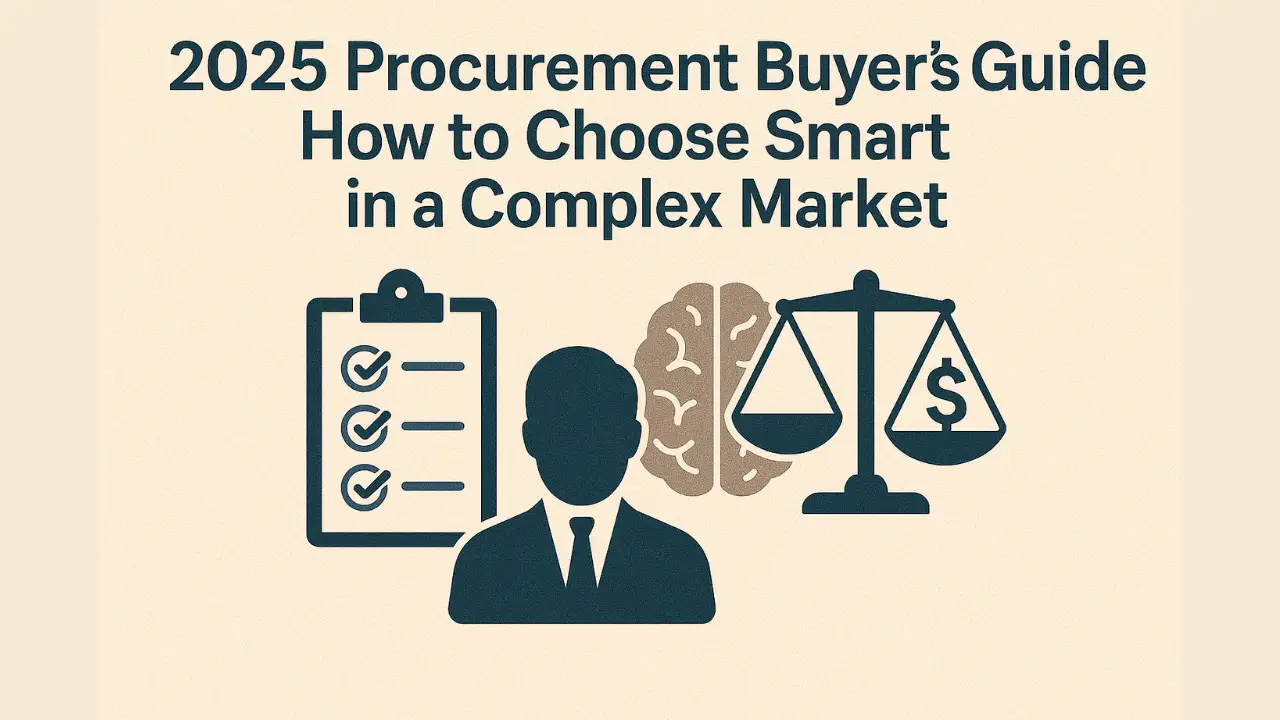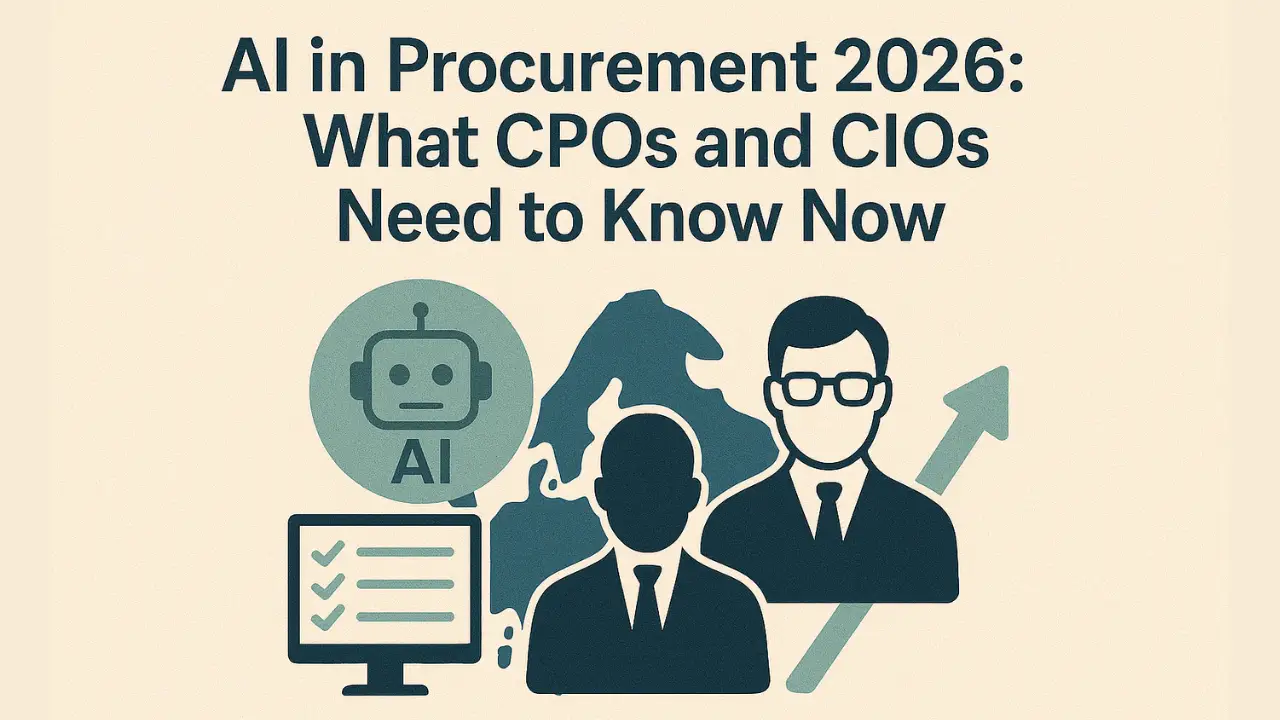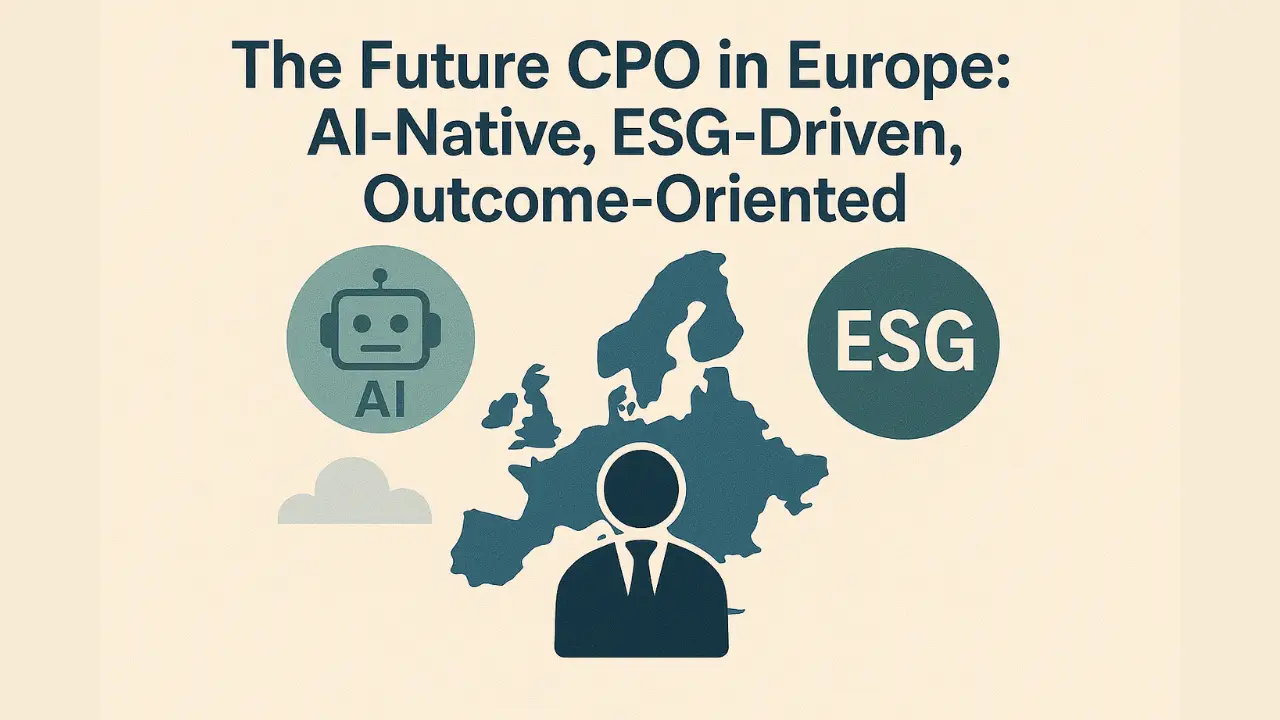The landscape of procurement is on the brink of a transformative evolution, driven by the rapid advancements in Generative AI (GenAI). As we edge closer to 2030, the integration of GenAI within procurement functions is poised to revolutionize how procurement professionals operate, offering unprecedented efficiency, personalization, and strategic insights. In this blog, we’ll discuss how GenAI is Reshaping Procurement Jobs by 2030 and delve into the pivotal changes anticipated in procurement jobs due to GenAI, based on insights from a comprehensive whitepaper
TL;DR
- GenAI will transform procurement by 2030, automating 50–80% of repetitive tasks such as spend analysis, supplier onboarding, and invoice processing while augmenting human decision-making.
- Procurement roles will evolve from administrative and transactional work to strategic, analytical, and relationship-driven responsibilities.
- Key areas of impact include real-time insights, extreme personalization, guided decision-making, and democratized access to procurement expertise.
- New skillsets are essential — AI literacy, data analytics, strategic thinking, collaboration, and ethical AI stewardship will define future procurement success.
- Organizations must act now by developing AI roadmaps, investing in training, and fostering a culture of innovation and continuous learning.
- Human-AI collaboration will drive the next era of procurement, blending machine intelligence with human creativity, ethics, and strategic insight to unlock unmatched efficiency and agility.
The Impact of GenAI on Procurement
A World of Unprecedented Change
Futurist Yuval Noah Harari notes that the future of work is fraught with uncertainty, especially as AI continues to evolve. This transformation, however, is not something to fear but an opportunity to embrace. According to Deloitte’s Generative AI and the Future of Work Survey Report, a significant number of jobs, particularly those held by women, are susceptible to GenAI automation. This shift highlights the need for strategic preparation over the next six to seven years.
How GenAI is Reshaping Procurement Jobs by 2030 and Why?
The year 2030 is pivotal because it marks a point where GenAI is expected to reach critical maturity. By then, its integration into procurement will be extensive, allowing us to fully analyze its impact on various procurement roles and skills. This timeframe provides a roadmap for procurement professionals to adapt and thrive in an AI-driven environment.
Key Areas of Transformation
1. Strategy and Insights at Scale
GenAI will enable procurement professionals to make data-driven decisions with real-time insights. This will encompass everything from spend analysis to strategic sourcing, enhancing the ability to develop and execute informed strategies across all spend categories.
2. Self-Service Like Full Service
Interactions within procurement will become proactive, intelligent, and frictionless. GenAI will streamline processes, making self-service feel like full service by providing timely and precise support. Explore Zycus’ self-service procurement tools that enhance user experience and efficiency.
3. Extreme Personalization
Every interaction and output will be tailored to the specific needs of customers, suppliers, products, services, and commodities. This personalization will enhance the procurement experience and outcomes.
4. Guided Everything
AI agents will play a crucial role in guiding procurement activities, ensuring smart, compliant decisions are made early in the process. This guidance will be integral to the efficiency and effectiveness of procurement functions. Discover how AI-guided solutions can help your procurement processes on Zycus’ Guided procurement solutions.
5. Democratization of Expertise
Tasks that once required extensive experience and expertise will be manageable by novice users with the help of AI. This democratization will expand the capabilities of procurement teams and reduce dependency on highly specialized skills. Find out how Zycus’ solutions democratize procurement expertise – Generative AI Platform for Source to Pay
6. Significant Work Reduction
A substantial portion of current procurement work, estimated at 50-80%, will be automated or eliminated. This reduction will be achieved through self-service capabilities and improved productivity, freeing up time for more strategic tasks.
7. Shared Knowledge and Services
Knowledge and services that are currently siloed will become accessible across the organization through AI support. This sharing will foster a more integrated and collaborative approach to procurement.
Detailed Role Analysis
1. Spend Analysis
Entry-Level Spend Analysts will see their data collection and categorization tasks fully automated. More advanced analysis roles will benefit from AI augmentation, although human expertise will still be necessary for complex analyses. Zycus’ spend analysis tools offer comprehensive support for spend management.
2. Sourcing
Sourcing Specialists will experience high automation in data entry and supplier research tasks. However, strategic sourcing roles that involve complex negotiations and strategy development will remain largely human-driven. Explore Zycus’ strategic sourcing solutions to enhance your sourcing strategies.
3. Contract Management
Routine tasks like data entry and basic contract drafting will be automated, while roles requiring legal interpretation and complex negotiations will still depend on human skills. Zycus provides contract management solutions to streamline and automate contract processes.
4. Supplier Management
Initial supplier onboarding and basic relationship management tasks will be automated. Strategic supplier management will require human expertise for risk assessment and building strong partnerships. For more information on managing supplier relationships, visit Zycus’ supplier management software
5. Invoicing and Payments
Data entry and basic invoice processing tasks will see high levels of automation. Roles involving complex discrepancy resolution and strategic financial management will continue to require human intervention. Zycus offers invoicing and payment solutions to automate and simplify these processes.
Thriving in the Age of GenAI
1. Embracing Analytical Skills
Procurement professionals will need to shift from basic data entry to sophisticated data analysis. The ability to interpret and translate AI-generated insights into actionable strategies will be critical. Leveraging data visualization tools will become essential for effective communication with stakeholders.
2. Enhancing Collaboration
GenAI will enhance, not replace, the need for collaboration. Strong communication skills and the ability to facilitate cross-departmental collaboration will be paramount. Procurement professionals will need to ensure seamless information flow and coordinated decision-making within an AI-powered ecosystem.
3. Mastering Negotiation and Relationship Building
While GenAI can provide data-driven negotiation insights, the human element remains irreplaceable in building trust and fostering strong supplier relationships. Developing negotiation skills and leveraging emotional intelligence will be key to successful procurement.
4. Committing to Continuous Learning
The integration of GenAI will accelerate changes in procurement. Adapting to these changes and embracing continuous learning will be vital. Staying updated with emerging technologies, industry trends, and best practices will help procurement professionals stay ahead. Zycus’ book 10x Source to Pay with GenAI can support ongoing professional growth.
Top Skills for the Future
To excel in a GenAI-powered procurement landscape, professionals must go beyond traditional skills and cultivate a blend of digital fluency, analytical acumen, and human-centered capabilities. As AI automates transactional tasks, procurement experts of the future will focus on strategy, innovation, and collaboration. Here are the key skills that will define success by 2030:
1. AI Literacy and Digital Fluency
Understanding how Generative AI works—its strengths, limitations, and applications in procurement—is essential. Procurement professionals will need to interpret AI outputs, validate insights, and integrate GenAI tools into daily workflows. Those fluent in AI will bridge the gap between technology and strategy, ensuring responsible and effective adoption.
2. Advanced Data Analytics
Procurement decisions will increasingly rely on data-driven insights. Professionals must be skilled in interpreting dashboards, visualizing complex data sets, and translating analytics into actionable sourcing strategies. The ability to work with AI-powered spend analysis and predictive models will be a major differentiator.
3. Strategic Thinking and Business Acumen
As GenAI takes over repetitive work, procurement leaders will focus on long-term strategy. Understanding market dynamics, supplier ecosystems, and total cost of ownership will help professionals align procurement decisions with overall business goals.
4. Emotional Intelligence and Negotiation Skills
AI can analyze data, but it cannot replicate human empathy or intuition. Relationship-building, supplier trust, and ethical negotiation remain vital. Emotional intelligence will be key to managing stakeholder expectations and driving successful supplier partnerships in an AI-augmented environment.
5. Cross-Functional Collaboration
Future procurement teams will operate within integrated digital ecosystems. Success will depend on the ability to collaborate seamlessly with finance, operations, IT, and sustainability teams. Effective communication and cross-functional project management will help ensure that AI initiatives deliver value organization-wide.
6. Change Management and Adaptability
AI transformation requires agility. Procurement professionals must embrace change, adopt new tools quickly, and help others navigate the evolving technology landscape. Change management and adaptability will determine how effectively organizations scale GenAI capabilities across teams.
7. Ethical and Responsible AI Stewardship
With AI increasingly influencing decision-making, ethical considerations will become central. Professionals must ensure fairness, transparency, and accountability in AI-driven procurement processes, from supplier evaluation to contract awards. Ethical stewardship will build trust and compliance within the AI ecosystem.
8. Continuous Learning and Innovation
The procurement function will evolve faster than ever. Continuous learning—through certifications, AI training, and exposure to new technologies—will be essential. Cultivating an innovative mindset will help professionals experiment, optimize, and stay ahead in a rapidly changing GenAI environment.
Case Study: Zycus’ GenAI Implementation Success
To illustrate the real-world impact of GenAI in procurement, consider the case of a leading global enterprise that partnered with Zycus to implement GenAI solutions. This enterprise faced challenges in managing its vast procurement data, optimizing supplier relationships, and improving contract compliance. By integrating Zycus’ GenAI-powered tools, the company achieved remarkable outcomes:
- Improved Data Accuracy and Insights: The GenAI tools provided real-time, accurate data analysis, enabling the company to make informed procurement decisions swiftly.
- Enhanced Supplier Management: Automated supplier onboarding and relationship management tools streamlined processes, reduced manual work, and improved supplier engagement.
- Optimized Contract Management: AI-driven contract management solutions ensured compliance, minimized risks, and expedited contract processing times.
Explore Zycus’ Generative AI Platform for S2P
These successes underscore the transformative potential of GenAI in procurement. For more details on how Zycus can help transform your procurement functions, visit success stories page.
Real-World Application: SIRVA Achieves Sourcing Efficiency with GenAI
As we delve into the transformative impact of Generative AI, it’s crucial to highlight real-world examples of organizations leveraging these advanced technologies for significant benefits. SIRVA, a leading global moving and relocation services provider, is one such example.
Discover how SIRVA transformed its procurement processes and achieved remarkable efficiency gains by adopting Zycus’ GenAI-based solutions. Watch the video below to learn more about their journey and the significant improvements they experienced.
Preparing for the Future
- Developing a Strategic AI Roadmap: To effectively integrate GenAI into procurement functions, organizations need a strategic AI roadmap. This involves identifying key areas where AI can add value, setting clear objectives, and ensuring alignment with overall business goals. Zycus offers consultancy services to help businesses develop and implement effective AI roadmaps.
- Investing in Training and Development: As GenAI continues to evolve, continuous training and development will be crucial. Organizations should invest in upskilling their procurement teams to harness the full potential of AI tools. Zycus provides extensive training programs and resources to support this journey.
- Fostering a Culture of Innovation: Embracing GenAI requires a culture of innovation within the organization. Encouraging experimentation, fostering creativity, and supporting new ideas will be essential. Zycus’ innovation management solutions can help organizations cultivate such a culture. Discover how to foster innovation with Zycus AI Council
- Ensuring Ethical AI Implementation: The ethical implementation of AI is paramount. Organizations must ensure that their AI solutions are transparent, unbiased, and aligned with ethical standards. Zycus is committed to ethical AI practices and offers solutions designed with these principles in mind.
Conclusion
The journey towards 2030 presents an exciting opportunity for procurement professionals to harness the power of GenAI. By understanding the anticipated changes and preparing for the future, they can position themselves to thrive in an AI-driven landscape. The key lies in embracing new technologies, developing essential skills, and fostering a collaborative and innovative mindset.
As GenAI continues to reshape procurement, the blend of human expertise and AI capabilities will unlock unprecedented potential, driving efficiency, personalization, and strategic success. The future of procurement is bright, and those who adapt will lead the way in this transformative era.
To stay updated on the latest trends and innovations in procurement, visit Procurement Blog, Articles, Tips & News and explore a wealth of resources designed to help procurement professionals excel in an AI-driven world.
FAQs
Q1. What is Generative AI (GenAI) in procurement?
Generative AI (GenAI) in procurement refers to the use of advanced AI models capable of generating text, insights, recommendations, and automation across procurement tasks. It powers activities such as spend analysis, contract drafting, supplier management, and guided decision-making, enabling procurement teams to work smarter and faster.
Q2. How will GenAI reshape procurement jobs by 2030?
By 2030, GenAI will automate or augment up to 80% of manual procurement tasks. Roles will shift from administrative work to strategic decision-making, data analysis, and supplier relationship management. Procurement professionals will focus more on interpreting AI insights, managing exceptions, and driving innovation.
Q3. What procurement roles will be most affected by GenAI?
- Spend Analysts: Data collection and categorization will be fully automated.
- Sourcing Specialists: Supplier research and data entry will be AI-driven, while negotiation remains human-led.
- Contract Managers: Routine drafting and compliance checks will be automated.
- Supplier Managers: Onboarding and performance tracking will be handled by AI.
- Invoice & Payment Teams: Manual data entry will be minimized through automation.
Q4. Will GenAI replace procurement professionals?
No. GenAI will augment rather than replace procurement professionals. While it will automate repetitive and data-heavy tasks, human judgment, negotiation, relationship-building, and ethical decision-making will remain essential for strategic success.
Q5. What new skills will procurement professionals need in a GenAI-powered future?
Future procurement professionals should develop:
- Analytical and data interpretation skills
- AI literacy and digital fluency
- Negotiation and relationship-building expertise
- Cross-functional collaboration skills
- Continuous learning and adaptability
Q6. What are the key ways GenAI will transform procurement workflows?
GenAI will enable:
- Real-time strategic insights and spend analytics
- Personalized and guided procurement experiences
- Self-service automation for end-users
- Democratized access to procurement expertise
- Organization-wide knowledge sharing and collaboration
Q7. How does GenAI enable “self-service procurement”?
GenAI creates intelligent self-service systems where employees can initiate and complete procurement actions—like supplier selection or purchase requests—without manual intervention. These systems provide real-time guidance, automate compliance checks, and make the experience as smooth as full-service procurement.
Q8. What is meant by “democratization of expertise” in procurement?
Democratization of expertise means that GenAI enables less-experienced users to perform complex procurement tasks with AI guidance. Tasks that once required expert knowledge—like supplier evaluation or contract review—can now be completed by anyone using AI-powered, guided systems.
Q9. How much of procurement work will be automated by 2030?
According to projections, between 50% and 80% of routine procurement activities will be automated or AI-assisted by 2030. This includes tasks such as spend analysis, data entry, invoice processing, and supplier onboarding.
Q10. What are the ethical considerations of using GenAI in procurement?
Ethical AI implementation is critical. Organizations must ensure their GenAI systems are transparent, unbiased, and respect data privacy. This includes using explainable AI models, maintaining human oversight, and aligning AI outputs with company ethics and compliance standards.
Q11. How can organizations prepare for GenAI adoption in procurement?
To prepare effectively:
- Develop a strategic AI roadmap aligned with business goals.
- Invest in training and upskilling procurement teams.
- Foster a culture of innovation and experimentation.
- Prioritize ethical AI design and deployment.
- Partner with trusted AI solution providers like Zycus.
Q12. What are the benefits of integrating GenAI into procurement functions?
Organizations adopting GenAI in procurement gain:
- Faster decision-making through predictive analytics
- Improved data accuracy and compliance
- Reduced manual workloads
- Enhanced supplier relationships
- Cost savings and process efficiency
- Strategic agility and competitiveness
Q13. How is Zycus helping organizations leverage GenAI for procurement?
Zycus offers a Generative AI Platform for Source-to-Pay (S2P) that automates routine tasks, augments decision-making with real-time insights, and democratizes procurement expertise. Their AI-powered tools enhance supplier management, contract compliance, and spend analysis, helping organizations achieve measurable efficiency and growth.
Q14. What real-world examples show GenAI’s success in procurement?
Global Enterprise Case Study: Improved data accuracy, streamlined supplier management, and faster contract processing with Zycus GenAI.
SIRVA: Achieved significant sourcing efficiency gains using Zycus’ GenAI-based procurement automation solutions.
Q15. How can procurement professionals stay future-ready in the age of GenAI?
Procurement professionals can future-proof their careers by embracing continuous learning, mastering data-driven tools, cultivating soft skills like negotiation and empathy, and actively engaging with AI-driven procurement platforms such as those offered by Zycus.
Related Reads:
- Enhancing Spend Analysis and Cost Reduction with GenAI
- A Realistic Look at the Promises and Pitfalls of GenAI in Procurement
- Zycus’ Generative AI Platform: Generative AI for Transforming Every Bit of your Source-to-Pay
- Utilize the Power of Generative AI in Spend Management: A Comprehensive Guide
- Future-proofing Spend Analysis Management with Generative AI
- Centralized or Decentralized: Generative AI is the Key to Unlocking Best of Both Procurement Operating Models


















































